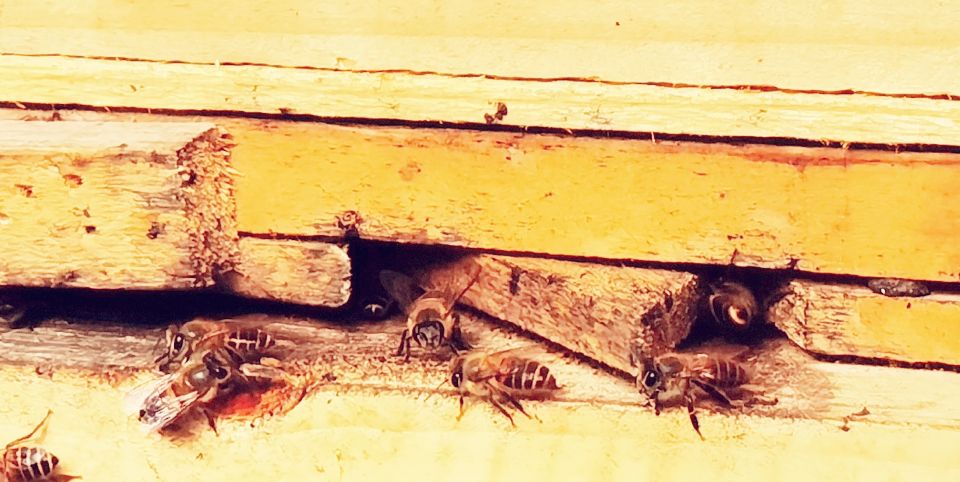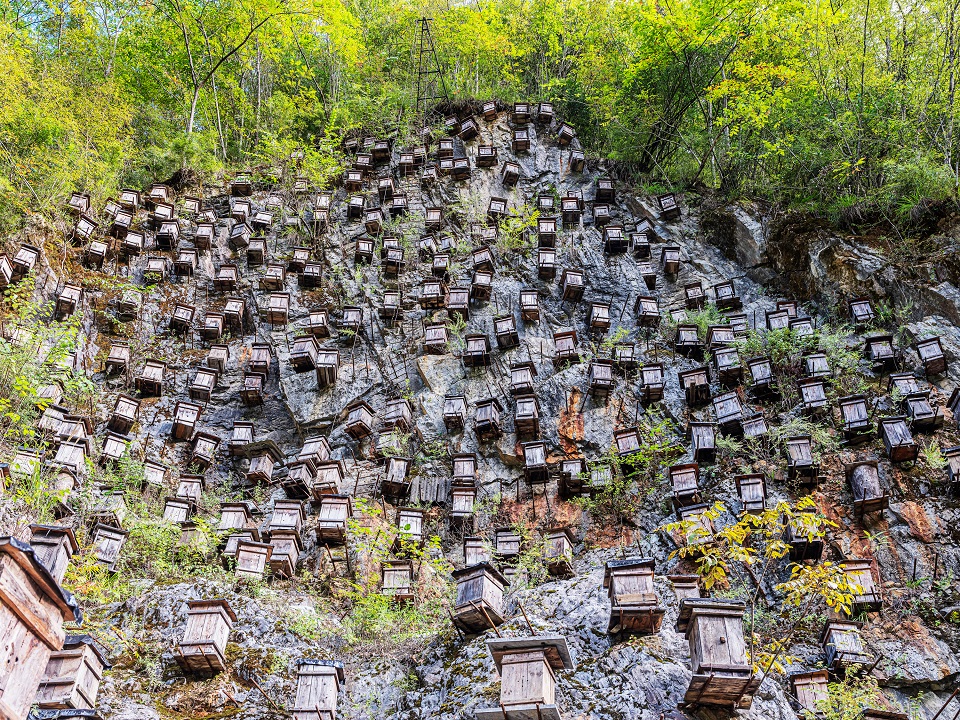A Little Bee Matters
Updated:2022-11-09 Source:Shennongjia National Park

A large group of Chinese Honey Bees (Apis cerana), also known as Chinese Bees, are special residents in Shennongjia National Park. They particularly are protected among more than 5,000 species of insects here, bringing wealth and good fortune to the local people. Shennongjia National Park is the first protection zone in Hubei and China's fifth national protection zone for Chinese Bees. To maintain the pure blood of the Chinese Bees in Shennongjia area, other species of bees are kept excluded from Shennongjia.
The densely forested Shennongjia area is an ideal place for beekeeping, with broadly dispersed Cruciferae, Rosaceae, Anacardiaceae, and Theaceae plants, luxuriant flowers, and thousands of Chinese herbs. As a result, the honey produced in Shennongjia is not only rich in nutrition but also precious for its high medicinal value. Meanwhile, the large population of Chinese Bees in Shennongjia serve as unsung heroes that play an irreplaceable role in pollinating various plants and facilitating their reproduction.
A total of more than 200 boxes of bees are kept on a beekeeping farm in Guanmenshan Scenic Area. The Chinese Bees live on a well-lit cliff lined with beehives, forming a very attracting scene of splendor. Beekeeper Zhu Shijun tells us some habits of the Chinese Bee. He says that Chinese Bees are very clever and pretty particular about living conditions. When choosing where to live, they don’t settle arbitrarily, but look for a ventilated place on the cliffs with an open view and shelter from rain. Every year when it is time for bee swarming, Zhu always hangs the beehives under the rocks on the cliffs, a preferable place for Chinese Bees to live. He won’t take the hives down until the bees move in.

According to Zhu, Chinese Bees are a vibrant and robust species and can be found almost everywhere in China, from the Greater Khingan Mountains in the north to Hainan Province in the south. They are cold-resistant so there is no need to move the bee hives into warm rooms when winter comes. The Chinese Bees huddle together in their hives to keep warm even on the coldest days.
“They are very hardworking. They fly out early during the day and come back late in the night, working two to three hours longer than other bees,” Zhu said. “In Shennongjia, there are not many natural predators for Chinese Bees, except for some relatively large wasps and hornets. Not only are they likely to attack the Chinese Bees in the field or just in front of the boxes, but they will also slip into the hives and kill the queen bee.” Sometimes a swarm of large hornets will fly over, which can be seen from a distance, and end up flying away each grasping a Chinese Bee. When this happens, the beekeepers need to stay vigilant to drive the large hornets away since the Chinese Bees are too small in size to defend themselves. In addition to wasps and hornets, the Asian black bear (Ursus thibetanus) is a great threat to Chinese Bees as well. There have been many incidents of black bears smashing beehives for honey in Shennongjia. In order to protect the interests of bee farmers from black bears, Shennongjia National Park offers beekeeping insurance. This allows bee farmers to have their colonies insured. When damage is caused by black bears, the insurance company will compensate bee farmers for their losses.
Honey produced in Shennongjia is much more expensive than other honey on the market due to its high nutrition and medicinal value. Prices range from 600 yuan to more than 1,800 yuan a kilogram or so, depending on the length of time it aged and matured, Zhu said. Many families have been lifted out of poverty by keeping bees in the wake of the strict protection policies implemented by the Park Administration.
According to Hubei Daily, there are nearly 3,000 beekeeping households in Shennongjia, producing more than 300 tonnes of honey with an annual output value of more than 42 million yuan. Shennongjia has set a goal to expand the number of bee colonies to 50,000 and build one or two nectar plant bases in each town to realize an annual beekeeping output value of 60 million yuan in three to five years. (Text by He Sai & Du Hua)Copyright Shennongjia National Park
Address:36 Chulin Road, Muyu Town, Shennongjia Forestry District, Hubei Province 鄂ICP备18005077号-3
Address:36 Chulin Road, Muyu Town, Shennongjia Forestry District, Hubei Province 鄂ICP备18005077号-3
Email:2673990569@qq.com
Phone:0719-3453368
Phone:0719-3453368


TOP

